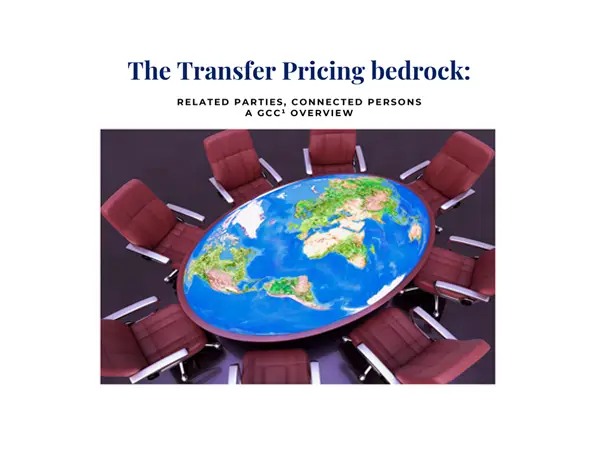Brief

In the context of taxation, the terms "connected persons" and "related parties", are often used to describe relationships between individuals and entities that may have an impact on tax liabilities and tax reporting requirements. Whilst there may be some variations in the definitions of related parties and connected persons across jurisdictions, the purpose remains similar, i.e. assessing the degree of legal and/or factual interdependence between ...

The UAE Federal Tax Authority (FTA) conducted on June 27 th , a comprehensive webinar on the General Principles of Corporate Tax and Business Taxation for Freezones. The session provided valuable insights and clarifications, particularly on some illustrative examples included in the newly released Corporate Tax Guide (CTGFZP1, May 2024).

The article outlines the key points of the OECD's "Amount B" guidance, which will be included in the OECD transfer pricing guidelines starting January 2025. Amount B is optional for jurisdictions and can be applied either mandatorily or optionally, affecting whether taxpayers must follow the prescribed methodology. It aims to simplify the arm’s length principle ...

In today’s globalized economy, multinational corporations engage in a myriad of complex intercompany transactions, which often involve the transfer of goods, services, intellectual property, etc., across international borders. These intercompany transactions are subject to scrutiny by tax authorities worldwide, particularly in the context of transfer pricing.

The 2022 MAP Statistics, the 2022 MAP Awards and the 2023 Consolidated Information on MAP were released during the fifth OECD Tax Certainty Day on November 14th, 2023. The latest MAP statistics cover a record 133 jurisdictions and practically all MAP cases worldwide. These statistics form part of the BEPS Action 14 Minimum Standard and the wider G20/OECD tax certainty agenda to improve the effectiveness ...

Since the start of the Base Erosion and Profit Shifting (BEPS) project, the Forum on Harmful Tax Practices (“FHTP”) has reviewed a significant number of preferential regimes. The results of these regimes are published in the BEPS Action 5 report and on a regular basis on the OECD’s website as new results become available.

In today’s globalized economy, multinational corporations engage in a myriad of complex intercompany transactions, which often involve the transfer of goods, services, intellectual property, etc., across international borders. These intercompany transactions are subject to scrutiny by tax authorities worldwide, particularly in the context of transfer pricing ...

The Organization of Economic Cooperation and Development (OECD) ongoing reviews of the Country-by-Country Reporting (‘CbCR’) Guidance underscore its commitment to fostering a fair and transparent global tax environment. While significant strides have been made, the reviews highlight the need for continuous improvement and adaptation.

In the evolving global tax landscape, the United Arab Emirates (UAE) has taken significant strides to align with the international tax standards. Central to these efforts, are the economic substance requirements (ESR) and transfer pricing (TP) regulations, both designed to ensure that profits are taxed where economic activities and value creation occur.

As the landscape of tax regulations continues to evolve, businesses and individuals alike face the challenge of navigating through tax compliance waves. In 2024, staying ahead of these waves requires a combination of strategic planning, meticulous organization, and leveraging technology. Whether you're a small business owner, a financial professional, or an individual taxpayer, here are ten invaluable tips to help you handle tax compliance with confidence in 2024.
The Tax Point is a premier tax advisory and tax coaching firm offering specialized services in international taxation.
E-mail: contactus@thetaxpoint.com
Phone: +971 585 854 811


